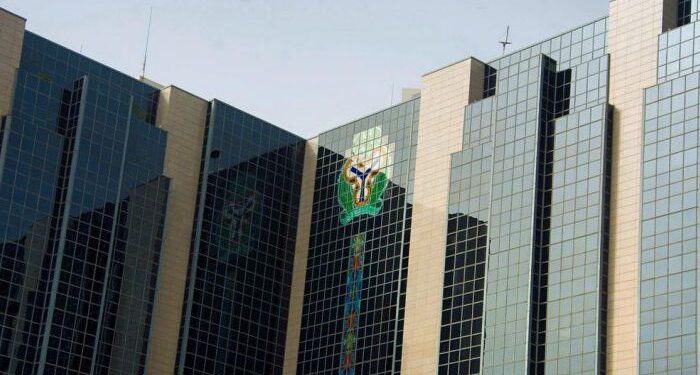The Central Bank of Nigeria’s (CBN) recently introduced Non-Resident Bank Verification Number (BVN) policy is being tipped by financial experts as a potential game changer in the country’s efforts to deepen financial inclusion and extend banking services to millions of Nigerians living abroad. The initiative, which allows Nigerians in the diaspora to obtain BVNs without physically visiting the country, aims to remove one of the most significant barriers that have long limited their access to financial products and services in the domestic banking system.
Under the new arrangement, Nigerians abroad can register for BVNs through selected international enrolment centres or online channels approved by the CBN, using valid identification such as international passports and other supporting documents. This will enable them to open and operate bank accounts, access credit facilities, and participate in investment opportunities back home. Before now, the requirement for physical presence in Nigeria to complete BVN registration discouraged many non-residents from formal banking engagement, pushing them towards informal or unregulated financial channels.

CBN Governor, Olayemi Cardoso, has said the policy reflects the apex bank’s commitment to leveraging technology and regulatory reforms to make the financial system more inclusive. He explained that the BVN framework, which has been in operation since 2014, has already improved customer verification, reduced fraud, and promoted credit access within Nigeria. Extending it to non-residents is the next logical step in integrating Nigerians everywhere into the formal financial ecosystem.
Financial analysts believe the move could significantly boost diaspora remittances, which are already a vital source of foreign exchange for Nigeria. By enabling direct access to personal accounts in Nigerian banks, the policy is expected to reduce reliance on costly and sometimes unreliable third-party money transfer channels. This, they argue, will not only make remittances cheaper and faster but also encourage non-residents to invest in Nigerian assets such as treasury bills, bonds, mutual funds, and real estate.
According to World Bank data, Nigeria received over $20 billion in remittances in 2023, making it the largest recipient in Africa. However, a significant proportion of these funds flowed through informal routes, making them difficult to track and reducing their potential contribution to economic growth. Experts say the Non-Resident BVN policy could help formalise these inflows, improve transparency, and strengthen monetary policy effectiveness.
The banking sector has also welcomed the initiative, with several commercial banks already announcing partnerships with overseas BVN enrolment agents. Industry stakeholders say the policy provides an opportunity to expand their customer base, launch diaspora-targeted financial products, and tap into the growing demand for cross-border banking services. Some banks are reportedly developing dedicated mobile apps and online platforms tailored to the needs of Nigerians abroad, offering features such as multicurrency accounts, instant transfers, and investment advisory services.
Beyond remittances, the policy is expected to stimulate entrepreneurship by enabling diaspora Nigerians to more easily establish and fund businesses in their home country. Small and medium enterprises (SMEs), which contribute significantly to Nigeria’s GDP, often face financing constraints due to inadequate credit history or collateral. With the BVN serving as a verifiable financial identity, diaspora entrepreneurs will be better positioned to secure loans and participate in government-backed support programmes.
However, some experts caution that for the policy to achieve its full potential, it must be accompanied by robust security measures to prevent identity theft and fraud. Cybersecurity specialists have advised that the CBN and banks implement multi-layered authentication systems and regular audits to safeguard customer data. They also recommend sustained public awareness campaigns to educate diaspora Nigerians on how to safely register and use their BVNs.
Consumer rights advocates have stressed the need for transparent fee structures and service level commitments from banks to ensure that non-residents receive fair value. They argue that without clear protections, the cost of accessing banking services from abroad could remain a deterrent, particularly for low-income Nigerians living overseas.
The policy’s success will also depend on cooperation with foreign governments and financial regulators to facilitate smooth cross-border data sharing and verification. Industry watchers note that such collaboration could open the door to even broader initiatives, such as mutual recognition of identity systems across African countries or integration with global payment networks.
For many Nigerians in the diaspora, the Non-Resident BVN policy represents more than just a convenience; it symbolises a stronger connection to their roots and a greater opportunity to contribute meaningfully to the nation’s development. As one UK-based Nigerian professional put it, being able to open a bank account or invest in Nigeria without boarding a plane is “a big step towards making the homeland part of our everyday lives, no matter where we are.”
If effectively implemented, the initiative could help Nigeria close the financial inclusion gap, harness more diaspora capital for development, and position the country as a leader in innovative, inclusive banking solutions in Africa. While challenges remain in security, accessibility, and regulatory coordination, the potential benefits are significant — not just for individual account holders, but for the Nigerian economy as a whole.
The coming months will reveal how quickly and effectively the CBN and banks can roll out the infrastructure needed for mass adoption. But for now, there is cautious optimism that the Non-Resident BVN policy could mark the beginning of a new era in Nigeria’s financial inclusion journey, one that bridges the gap between millions of its citizens and the financial system, regardless of distance.
Support InfoStride News' Credible Journalism: Only credible journalism can guarantee a fair, accountable and transparent society, including democracy and government. It involves a lot of efforts and money. We need your support. Click here to Donate
